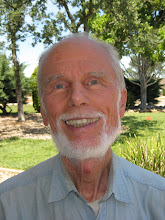I just finished reading Second Corinthians and was struck by the use of a certain word in verses 9 and 11 of Chapter 13:
Your restoration is what we pray for. . . . Finally, brothers, rejoice. Aim for restoration, comfort one another, agree with one another, live in peace, and the God of love and peace will be with you (ESV)
.
In Koine Greek, the verb form is
katartizo, which in various translations is "be perfect" (KJV), be made perfect" (NIV), "aim for perfection" (NEB), "be made complete" (NKJV), "mend your ways" (RSV, JB), and "aim for restoration" (ESV).
The context of the letter is a Corinthian church that has been riven by divisions over the personalities of leaders, damaged by tolerance of egregious sin and guilty of disorder in the observance of the Lord's table. Indeed, a few verses before these Paul exhorts, "examine yourselves, to see whether you are in the faith. Test yourselves" (v. 5a).
Given this situation, the translations "mend your ways" and "aim for restoration" seem better than, for example, "be made perfect."
Katartizo has a wide range of meaning, but one of the first we see in the New Testament is at Jesus' calling of James and John to be disciples while they were "mending" their nets in the boat with their father Zebedee.
In verse 11 itself, the use of
katartizo is followed by a series of exhortations to "comfort one another, agree with one another," and to "live in peace." The emphasis of these is on the loving unity that should reign in the body of Christ for "the God of love and peace " to be "with you." This happy state is followed by the command to "Greet one another with a holy kiss."
Given this emphasis on loving unity, I would use yet another signification of
katartizo here, that of being knitted together or united completely (Perschebacher,
The New Analytical Greek Lexicon)
. This is not a very novel insight
since a similar passage in 1 Corinthians 1:10 is rendered in the NIV: "I appeal to you, brothers, in the name of our Lord Jesus Christ, that all of you agree with one another so that there may be no divisions among you and that you may be
perfectly united in mind and thought."
The passage from chapter13 made me think of that phrase from Johnny Cash's "I Walk the Line": "I keep the ends out for the ties that bind." The singer makes an effort to keep his heart strings open to his absent lover in anticipation of their hearts being woven together when they are back together. I am thinking about how all this might be applied to our focus groups. It seems to me that it points in the direction of doing things together beyond our weekly meetings.
Any ideas about this out there?
